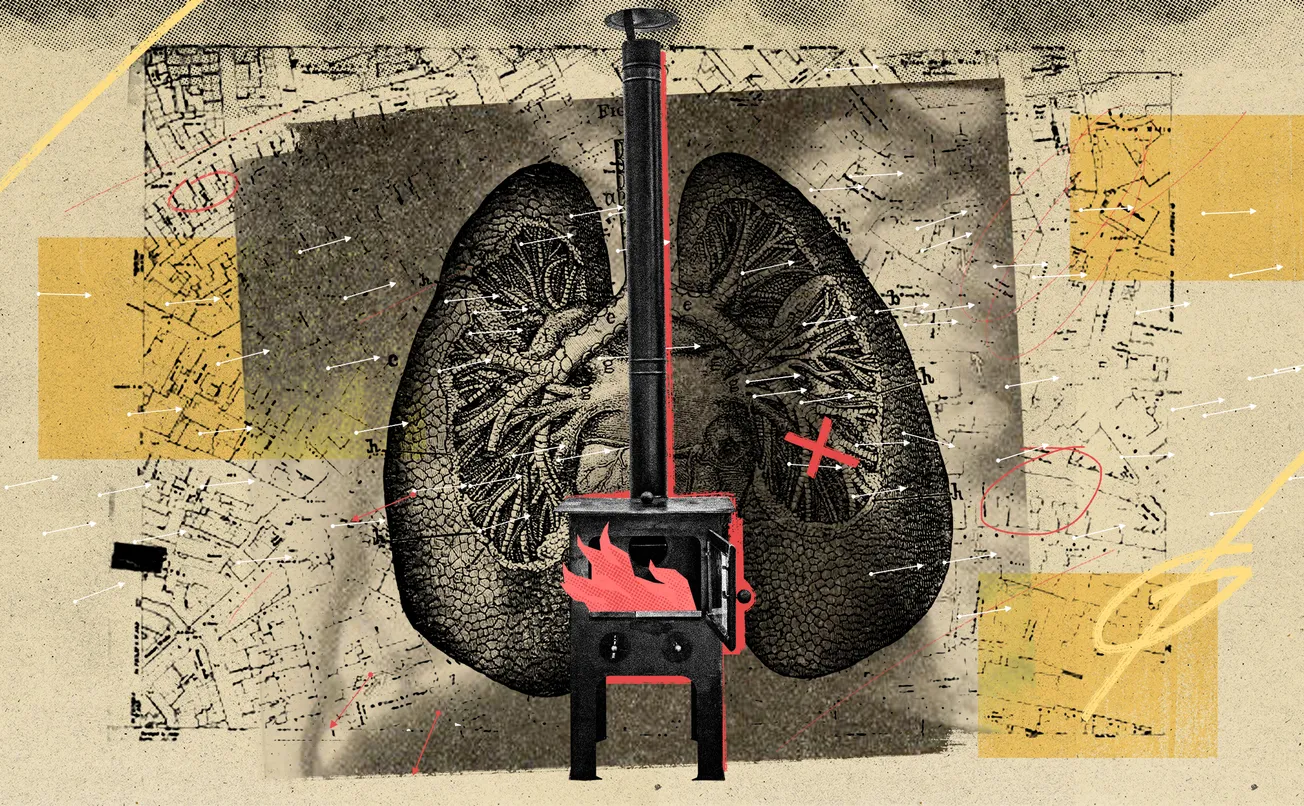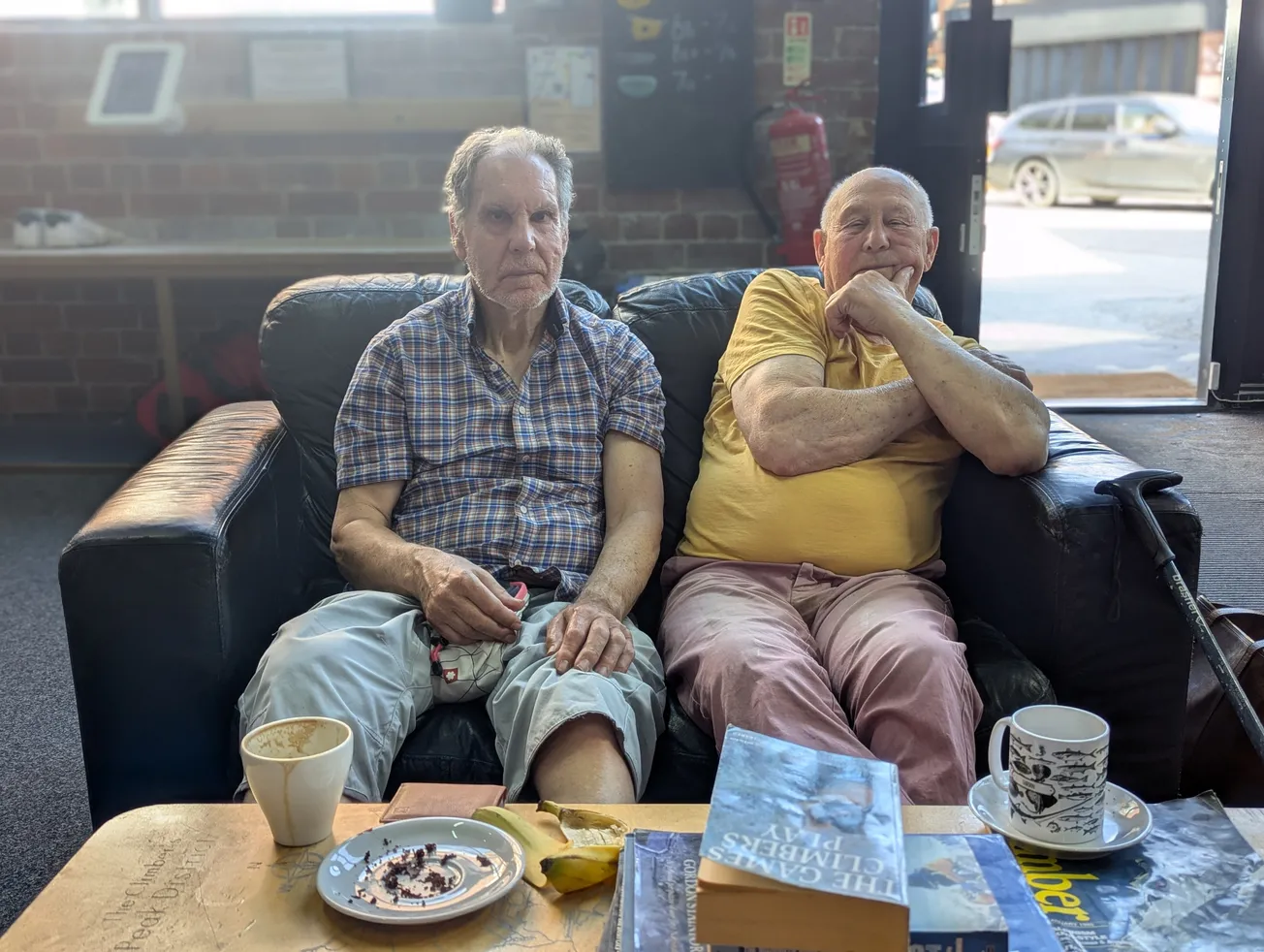There is a reason elections don’t normally take place in January. As I walk down Oldfield Road in Stannington ahead of the council by-election due to take place here next Thursday, an icy wind cuts through me. According to the weather forecast, temperatures today will reach a high of just four degrees. Political reporters often talk about ‘taking the temperature’ of a seat ahead of a key election. Maybe they wouldn’t if it was always this cold.
A by-election taking place here in January wouldn’t usually attract much attention. But with a general election possibly just months away, there are more eyes on the contest than usual. Stannington is in the constituency of Sheffield Hallam, the only seat in the UK which is a straight fight between Labour and the Lib Dems. For years, Hallam was a Lib Dem stronghold, until Nick Clegg unexpectedly lost in 2017. Labour were widely expected to lose it during the general election of 2019, but current MP Olivia Blake won by 700 votes. At the next general election, the Lib Dems would love to take it back.
Stannington remains a Lib Dem stronghold on the council, with all three councillors for the area being drawn from the party until Vickie Priestley’s death in November triggered this by-election. But that hasn’t always been the case. In the 90s, prior to some local boundary changes, Labour held a handful of council seats in the area, and in 2011 they came within just five votes of winning here. Yet in the last local elections, they were more than 1,500 votes behind. If Labour want a big majority at the next general election, they need to be doing substantially better here — and in other places like this.
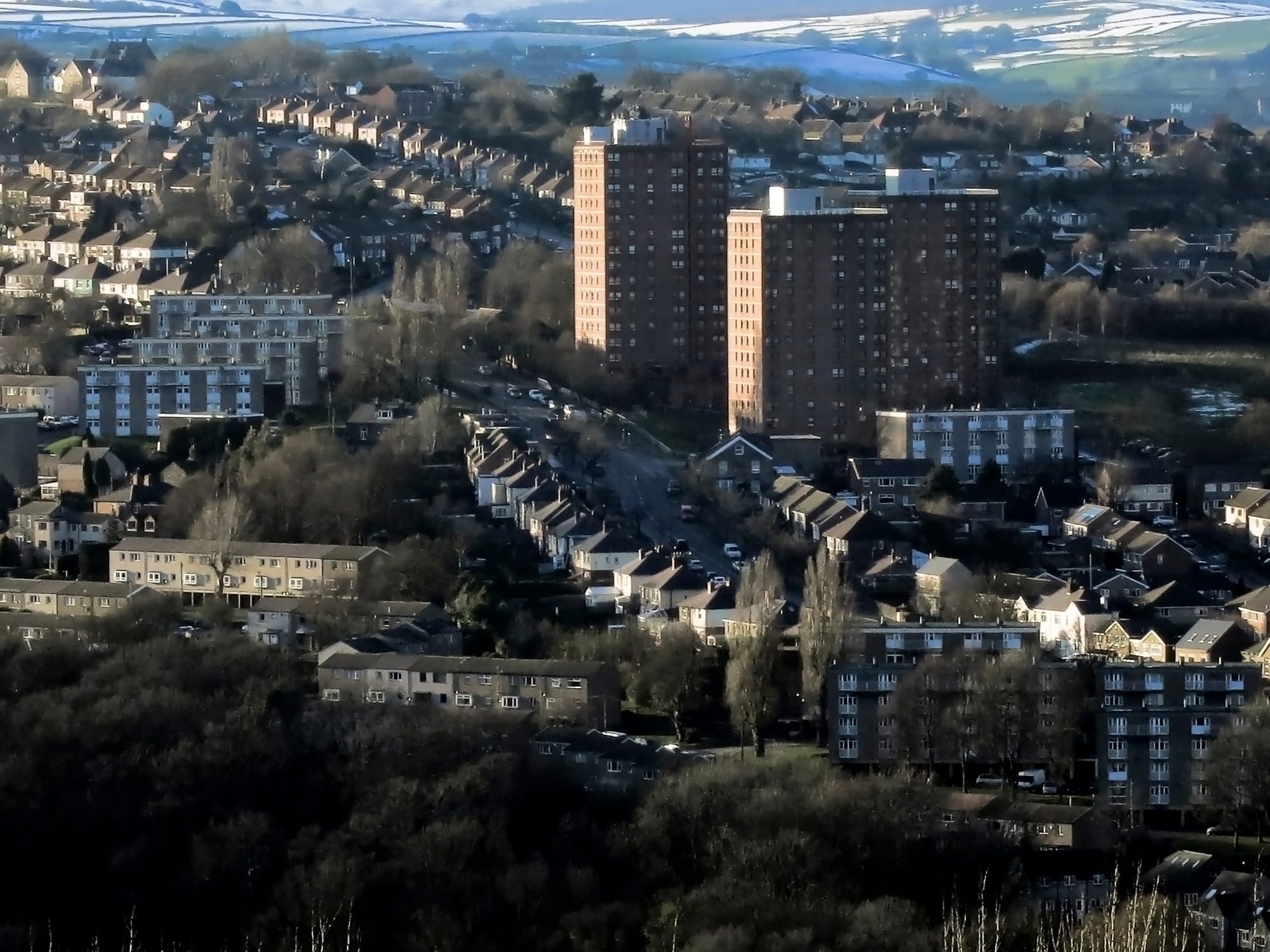
A quick walk round is all it takes to realise Stannington isn’t exactly in the grip of election fever. I can’t see any posters or placards up in people’s windows or gardens, and several people I speak to seem surprised to hear there’s an election taking place at all. But that isn’t to say people don’t have strong views. After speaking to residents over a few hours, their main concerns could be summed up in two words: trouble and transport.
A friendly shop assistant at Stannington News tells me crime, drugs and anti-social behaviour are the area’s main problems. “There are a lot of issues in this area, but you only ever see these councillors at election time,” he says. “At night, Deer Park flats turn into the wild, wild west.” He adds that these problems have only been made worse by the fact that the council gave the shop next door a 24-hour alcohol licence, while it feels like the police have given up. As we’re chatting, a customer comes in. “Will you be voting in the by-election, Jamie?” the shop assistant asks. “Fuck that,” comes the reply.
While crime and anti-social behaviour is an issue for some people in this part of the ward, almost every other person I speak to is concerned about the dire state of the public transport system. One woman walking down Oldfield Road says her son lives in Deer Park flats and tells her the problems of the tower blocks are overstated. He’s more bothered about the state of the buses. A woman walking back from the Co-Op says she now opts to walk back from the Malin Bridge tram stop at the bottom of the hill because the bus service is so unreliable.
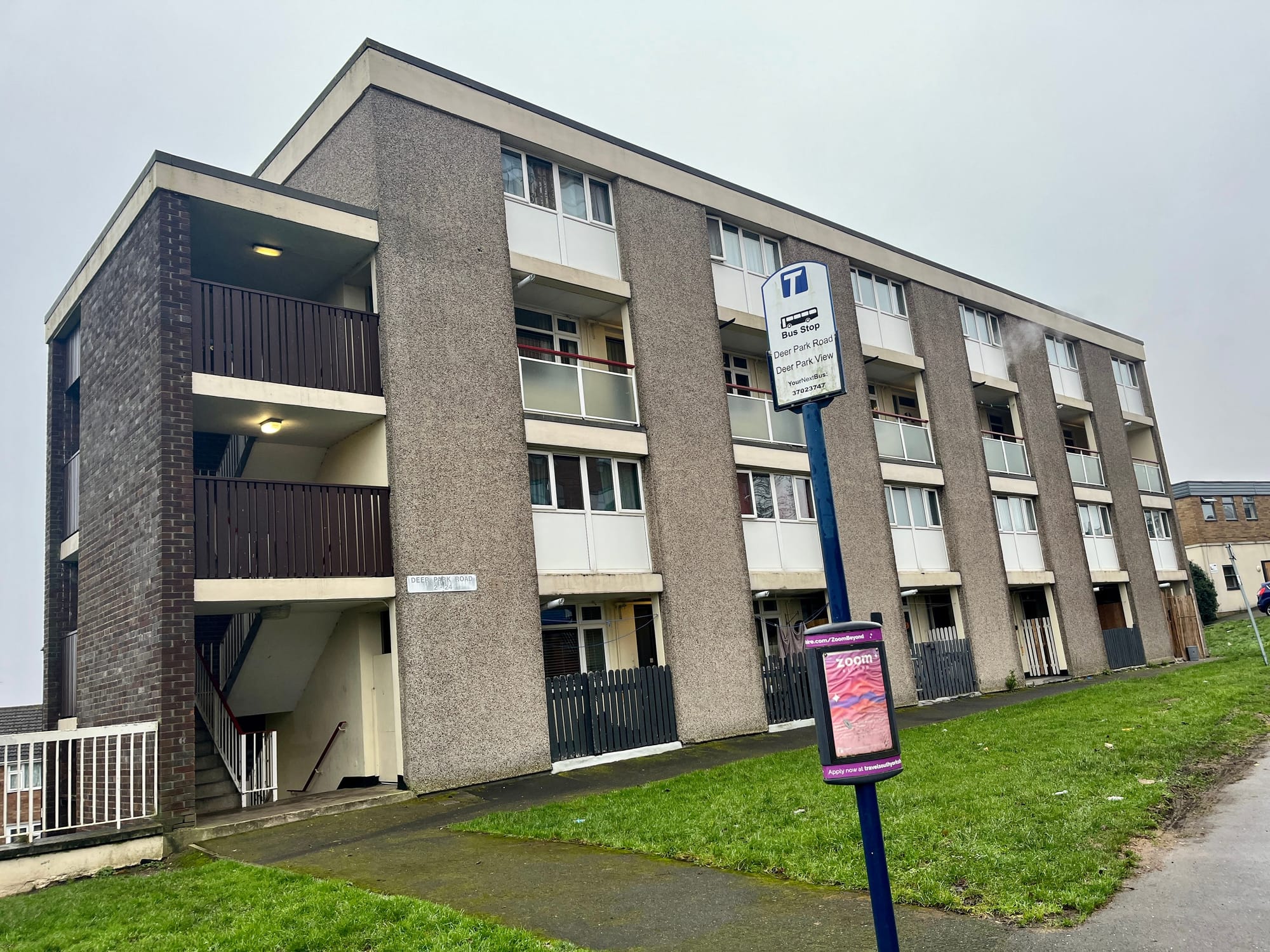
I meet Omar as he arrives back into Stannington on the bus from going to the gym. He is well aware the election is taking place, but doesn’t know who he will be voting for. So close to a general election, inevitably national politics exerts an influence, but he doesn’t feel inspired by either Keir Starmer or Ed Davey. “And the Conservatives are terrible,” he adds. In terms of local issues, like others, his main concern is public transport. “Not being able to travel to places can be very isolating, especially for elderly people,” he tells me. “Reading through the leaflets, the Lib Dems had more on public transport, so I might vote for them.”
Like the rest of the Sheffield Hallam constituency, the ward of Stannington isn’t easy to sum up. Lower Stannington, the area around the tower blocks, is a traditional working class area — a bit like the Gleadless Valley. Further up the hill is the more middle class village of Stannington itself, and beyond that, the rural outer regions of the ward going out towards the Peak District. Sheffield Hallam is more middle class, on the whole, but its large and growing student population in suburbs like Crookes and Broomhill have made it more fertile territory for Labour in recent years.
In total, five candidates are contesting the by-election, but only two have a realistic chance of winning. Aiming to replace Vickie Priestley for the Lib Dems is 32-year-old junior doctor Will Sapwell, who came to Sheffield to study medicine in 2009 and has stayed ever since. His Labour opponent is Lewis Dagnall, 30, a PhD candidate and history teacher at the University of Sheffield.
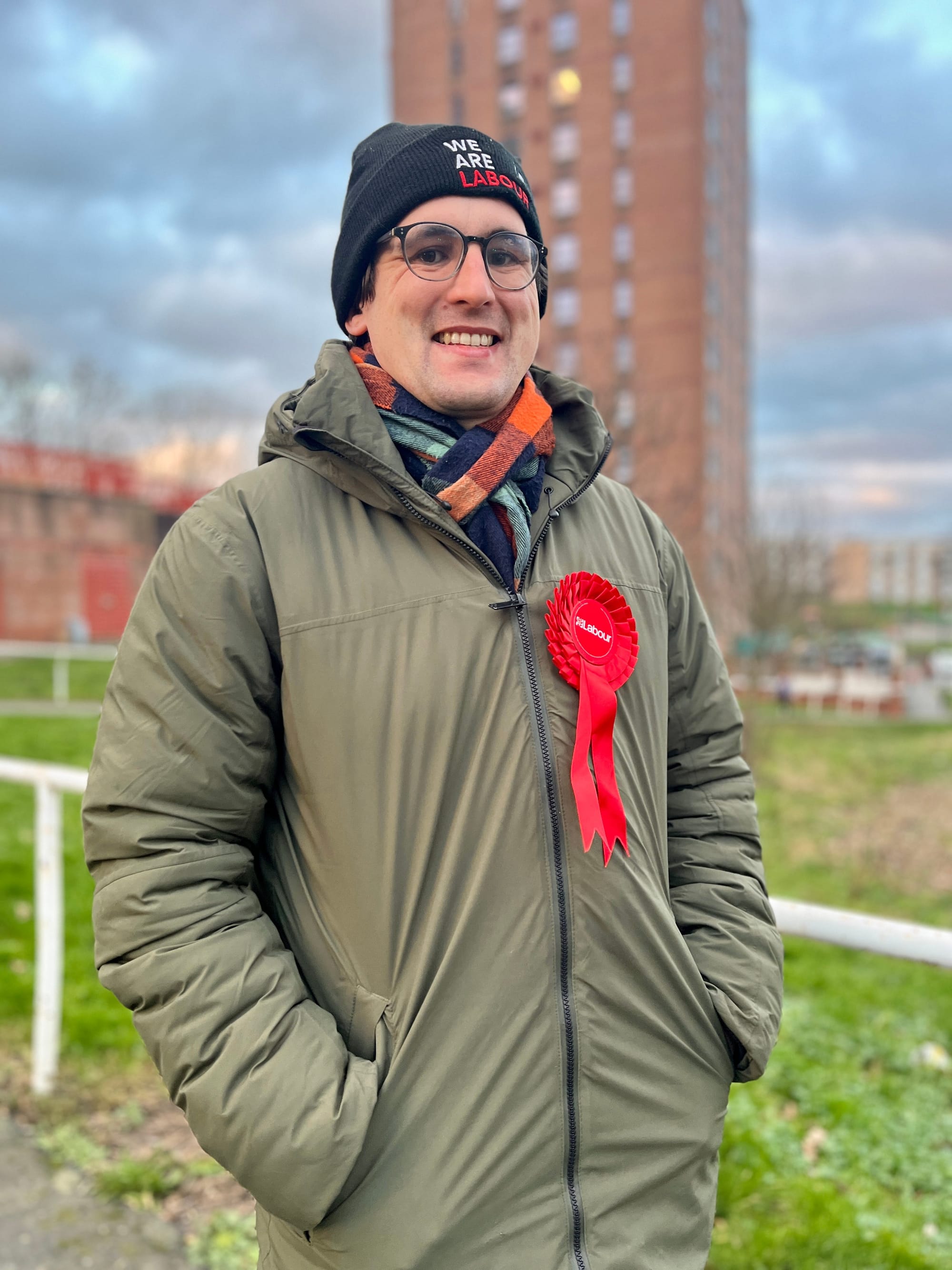
I meet Dagnall at the Schoolrooms in Bradfield, a lovely little café in one of the more rural parts of the sprawling ward. He has been a city councillor before, first for Sharrow and then for Gleadless Valley, but stood down in 2021. As well as being the partner of the current Sheffield Hallam MP Olivia Blake, he’s probably best known for his role in the Sheffield tree scandal, taking over cabinet responsibility for the Streets Ahead PFI contract at the height of the long-running row and successfully shepherding it into a less fractious state. Since the by-election was announced on 10 December, he’s been out campaigning two or three times a day, only taking Christmas Day, Boxing Day and New Year’s Day off over the festive period. They’ve also had people canvassing in the rural parts of the constituency twice in the last four weeks, while council leader Tom Hunt has been out on his behalf half a dozen times already.
Does he think Labour can win in the traditional Lib Dem stronghold? “We want to give it our best go. We think we’ve got a chance,” he says. “We had councillors here under Blair, lost them in the mid-2000s, so maybe it’s time again.” If the party were to pull off a win in Stannington, it could be a good indication that they’re on course for a big majority at the general election. But Dagnall is quick to dampen expectations down as well. When this seat was fought last May, the Lib Dems got a whopping 52% of the vote to Labour’s 27%. “We don’t necessarily have to win it,” he tells me. “If we come in second, but there’s a big swing towards us in Stannington, that still bodes really well. It’ll show that we’ve sorted ourselves out in Sheffield.”
The national party is understandably interested because of what it might tell them about the Hallam seat at the next general election. One of the reasons that former council leader Terry Fox was ousted from his position last May was that the Labour Party’s national leadership wanted to win back Sheffield City Council. If there is a Labour government in the near future, they want all the different levels of government — local council, regional mayor, national government — to be pulling in the same direction. “They want to make sure we can get stuff done,” Dagnall says.
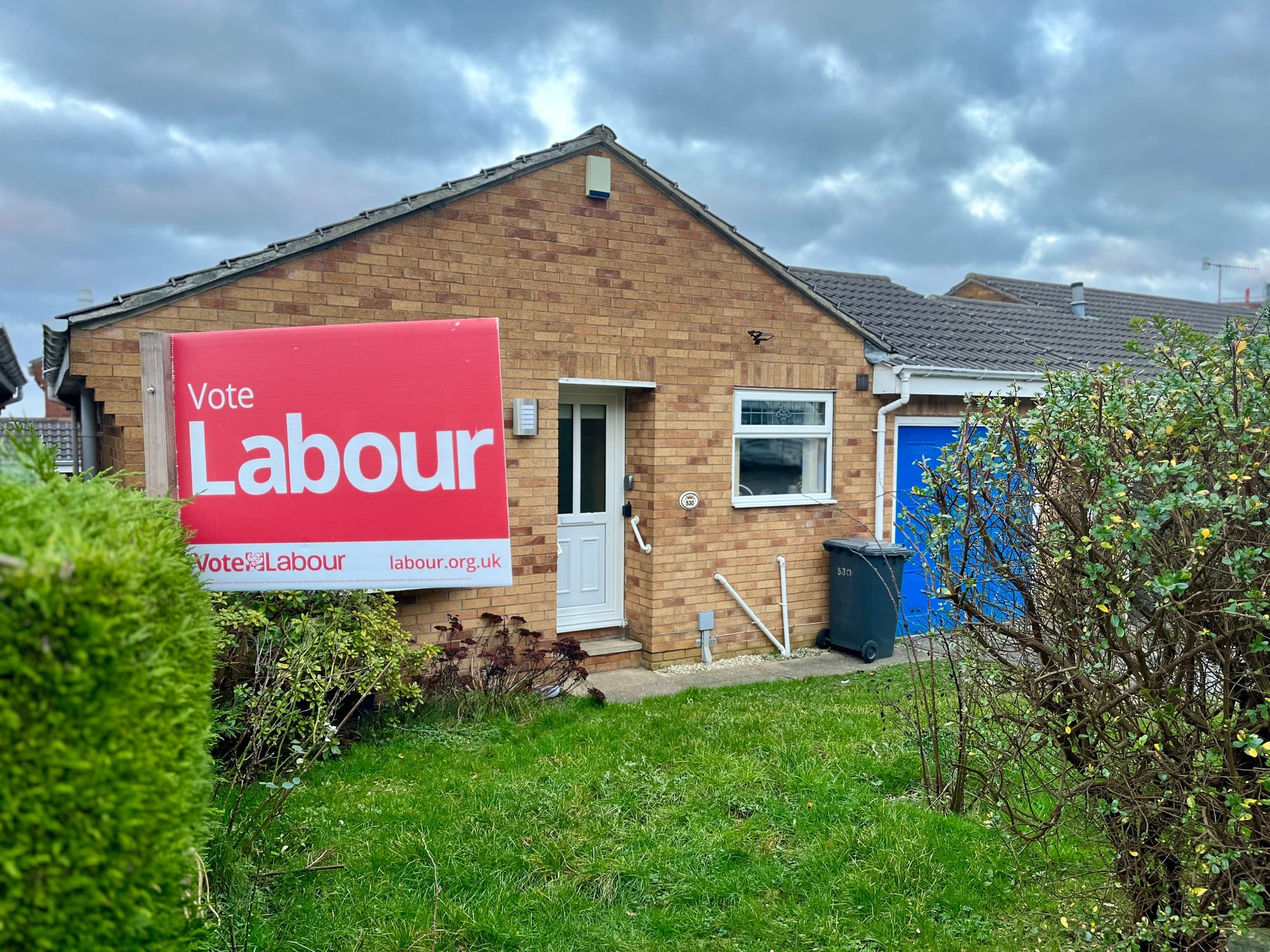
Because the next general election will be taking place so soon, Dagnall’s campaign team are also asking constituents how they will vote in this by-election — and are getting what he describes as “interesting” answers. “There are a lot of people who are genuinely undecided, both for local and national,” he says. “We’re getting all sorts of combinations. People voting for different parties in different elections.” Either way, many people in the ward are definitely keen to have a general election soon, he adds.
Like me, Dagnall has heard serious concerns about anti-social behaviour and buses raised on the doorstep. But he’s also campaigning on the cost of living crisis and sewage, with several of the controversial combined sewage overflows, which leak raw sewage in heavy rain, being situated in the Loxley valley. In terms of buses, he says the villages of Worrall and Loxley are “completely cut off” on Sundays, while the entire ward has a reduced service on Friday and Saturday nights. “One person who lives in Holdworth [a hamlet in the Loxley valley] told me that when they want to get to Sheffield train station, they walk — it’s the only way she can guarantee to be there on time,” he says.
After meeting Dagnall at the Schoolrooms, I catch up with his Lib Dem opponent Will Sapwell in The Peacock pub on Stannington Road. The ward is so vast and varied that a wide range of issues have been raised with him, from council repairs in and around Deer Park flats to the future of the derelict Hepworth factory site in the Loxley Valley. Again, the one thing that everyone in Stannington mentions is public transport. “The biggest thing that comes up on the doorstep is buses and their lack of reliability,” he tells me. “On Sundays, if you are in Loxley or Bradfield and you don't have a car, you are stuck. That’s just not good enough.”

The Sheffield Lib Dems support a “franchised” system, where the buses would be brought back under public control. Here, they are on the same page as South Yorkshire Mayor Oliver Coppard, who is proposing doing the same. This certainly isn’t going to be a quick fix. In the meantime, Sapwell would like bus companies to be given more incentives to take on less profitable routes, and for them to provide direct buses to healthcare hubs so that people in places like Stannington can get to Northern General Hospital without having to travel into the city centre and back out. Whether this is possible in a still deregulated system is the big question.
Lifting our eyes to the wider political context of this by-election, Sapwell accepts that lots of people will be looking next Thursday for any clues they can read into how Labour and the Lib Dems might do at the council elections in May and in a general election which will almost certainly take place this year. Terry Fox was ousted for the failure of the local party to make much progress in 2023. If Labour win (or at least do well) in Stannington, it may indicate they are on the comeback trail.
Likewise, the by-election provides a glimpse of the fight that will take place in this area at the next general election between a Labour Party trying to win back national power and the Lib Dems trying to take back Hallam locally. While council leader Tom Hunt has been out regularly for Lewis Dagnall, Lib Dem leader Shaffaq Mohammed (who will contest Sheffield Hallam for the party at the next general election) has been hitting the campaign trail for Sapwell as well.
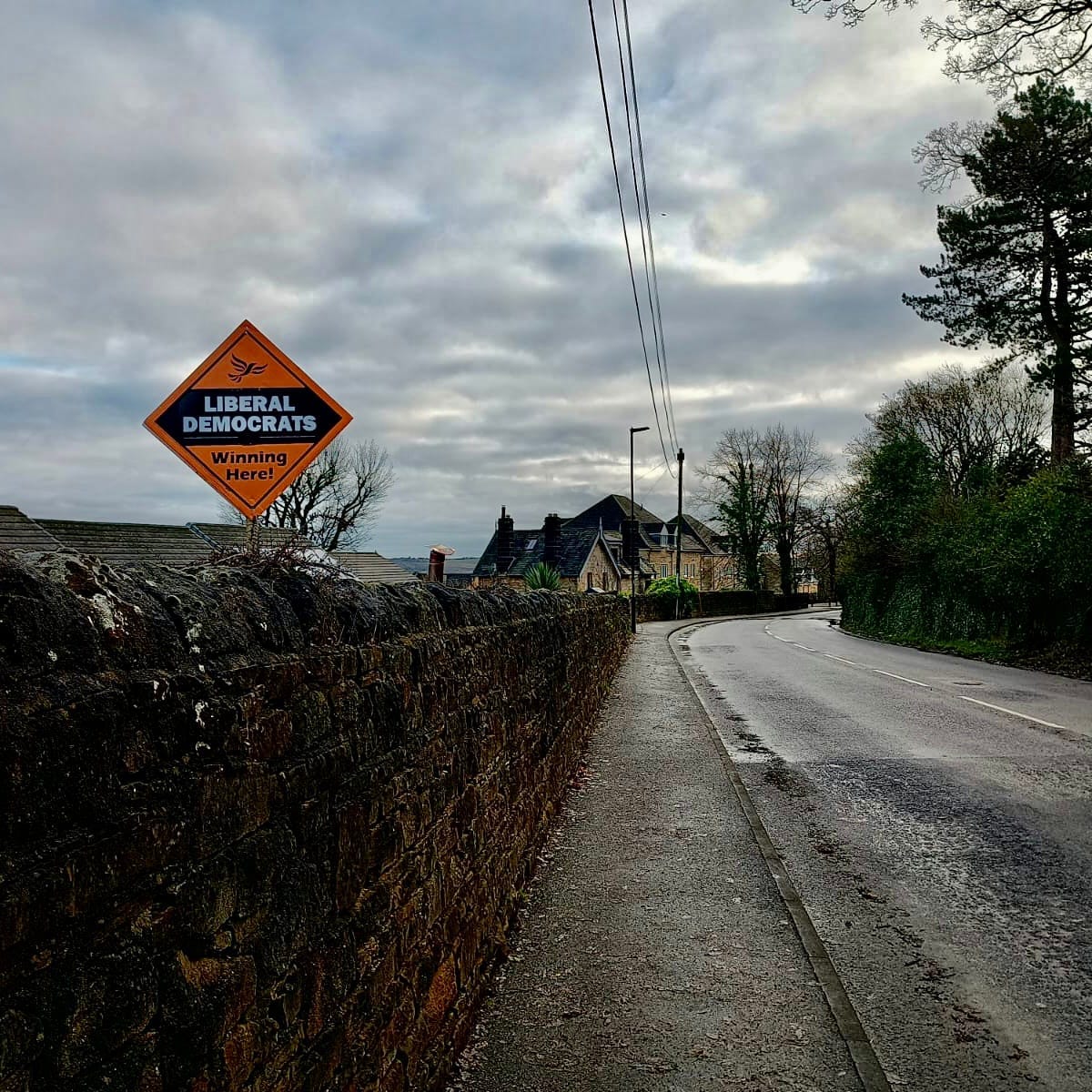
Sapwell is honest enough to tell me the coalition government, austerity and tuition fees do still come up as problems on the doorstep for the Lib Dems, but that it’s slowly been getting better over the last few years. The Conservative government isn't popular, but neither is a council that had been Labour-run or Labour-led for over a decade. This could provide an opening in Hallam for the Lib Dems to capitalise on their historic strength of picking up voters who want to reject the two main parties. “Certainly on the doorstep people are angry at mainstream politics at the moment and in Sheffield they include Labour in that,” he says.
If they’re successful here, could it bode well for the Lib Dems in this area in the next general election? Could they take back Sheffield Hallam? “That would be lovely, and there’s no denying that we’re working towards that,” Sapwell says. “We don’t even know when the election is going to be so we’re just working hard, speaking to voters and we’ll have to wait and see.”
Before I leave, I drop in at the Stannington tenants’ and residents’ association, which is housed in one of the middle rise maisonettes on the other side of Oldfield Road to the Deer Park flats. Volunteer Steve lives at Deer Park and agrees that drugs, crime and anti-social behaviour are big problems in the area. The underpass which connects either side of the main road is a well known dealing spot, with cars “coming from all over”, he tells me. Likewise, he says the bus service is appalling and getting worse. But for him there is a much bigger issue, which is that people aren’t engaged with politics and no longer feel it has the power to change their lives for the better.
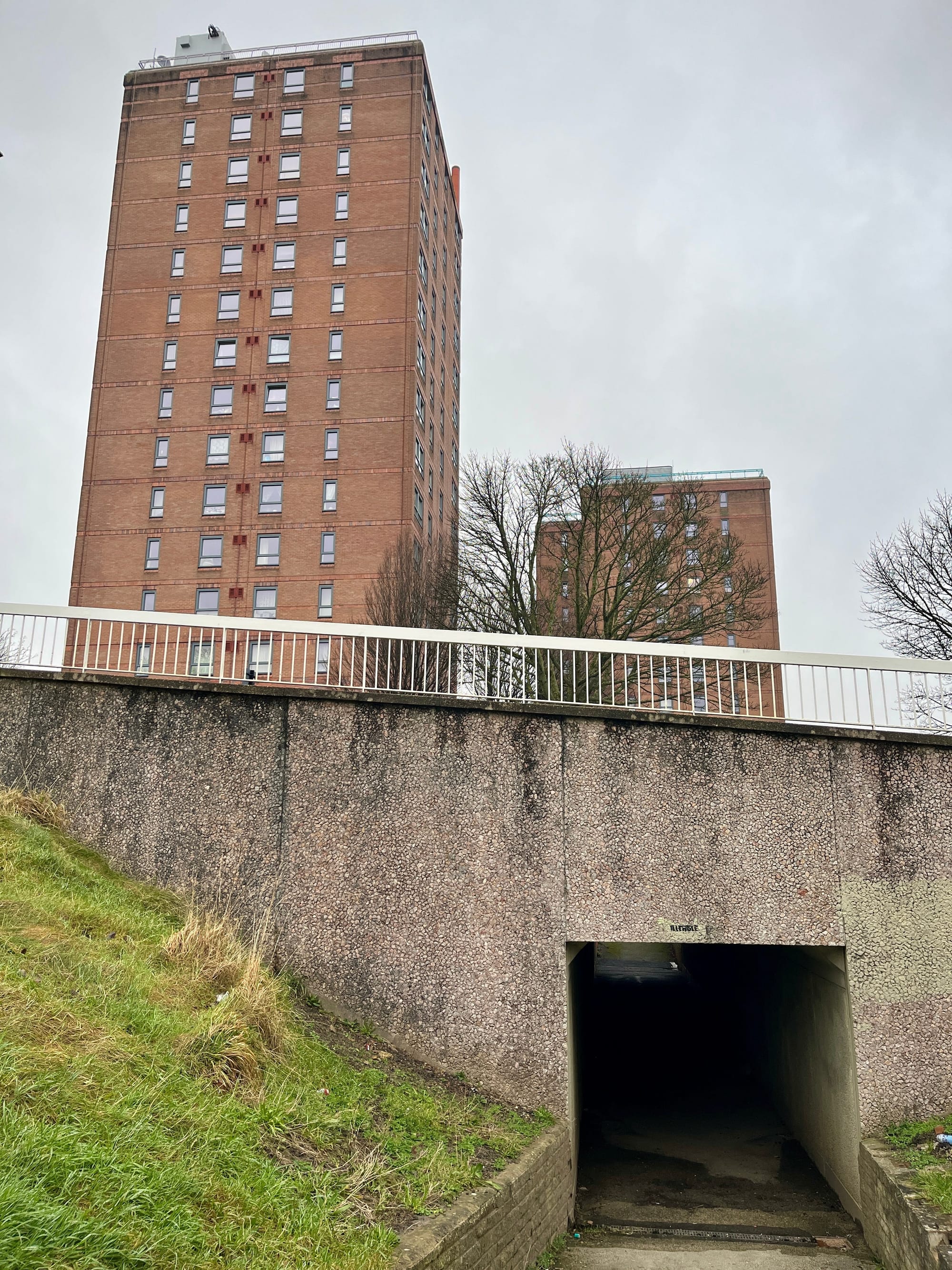
It’s a problem that currently affects politics across the UK and around the world, with political leaders seemingly incapable of bringing about the changes they promise, from Brexit and immigration to the health service and crime. “The main problem here is apathy,” Steve tells me. “People feel like no matter what they do nothing will change. If you knock on a door long enough and no one opens it, you just don’t knock on the door any more.”
The two parties may be eyeing Stannington for different reasons, but whether it becomes an extra seat on Sheffield City Council, or a sign that they may win here at the general election, the local issues raised here have national significance. The real test will be whether they can actually change people’s lives — if they can’t, that apathy will only grow.
Do you live in Stannington or Sheffield Hallam? If so, which way will you be voting? As always, paying members can let us know what they think in the comments section.

Comments
How to comment:
If you are already a member,
click here to sign in
and leave a comment.
If you aren't a member,
sign up here
to be able to leave a comment.
To add your photo, click here to create a profile on Gravatar.



